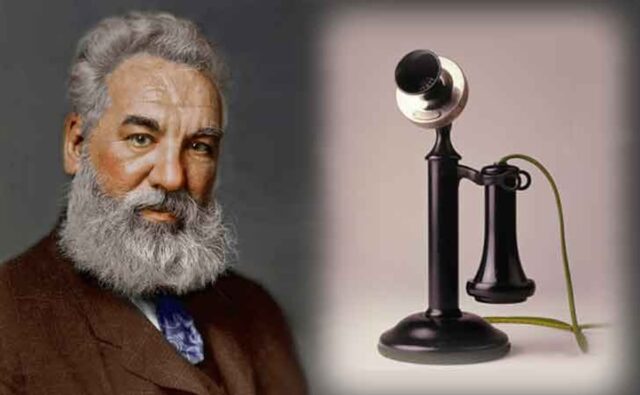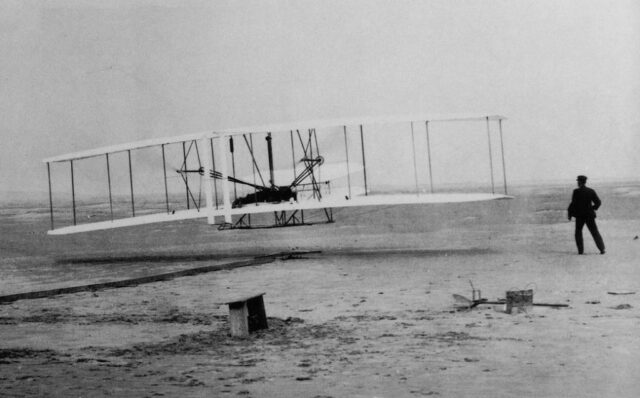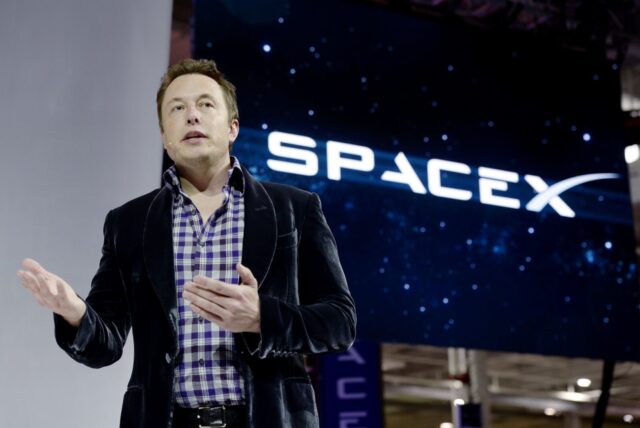
The wheel, the compass, the printing press – our history is shaped by groundbreaking innovations. They drive society forward, fundamentally transforming how we live, work, and play. Behind every innovation, there are inventors, often visionaries, who see the world differently. This blog will guide you through tales of such individuals and their inventions that have marked significant turning points in history.
Thomas Edison’s Light Bulb
In the late 19th century, a period brimming with innovation and the spirit of discovery, Thomas Edison unveiled what would become one of the most iconic inventions: the incandescent light bulb. His was not the first attempt, as others had dabbled in the idea, but it was Edison’s relentless experimentation with thousands of different materials that yielded a filament capable of glowing brightly for hours. While he wasn’t the pioneer of the idea, his design perfected it, making it both practical and commercially viable and you can do the same for your invention if you check here.
This invention radically changed indoor environments. Gone were the days when candles dripped wax and gas lamps emitted smoke, both fire hazards. Edison’s bulb illuminated homes, streets, and factories, ensuring safer environments, extending productivity into the night, and creating a vibrant nightlife in cities. Today, beyond its obvious utility, the bulb symbolizes eureka moments, standing as a beacon of innovation and as an enduring testament to Edison’s lasting imprint on the world.
Alexander Graham Bell’s Telephone

1876 marked a turning point in the way humans communicated. In that year, Alexander Graham Bell introduced the world to his invention: the telephone. Prior to this, communication across distances required letters or telegraphs, systems that were efficient for their time but still had significant delays. Bell’s invention transformed this completely. By converting voice vibrations into electrical signals, he made real-time long-distance conversation a reality. Within a few decades, this marvel of technology began shrinking vast expanses, making it seem as though loved ones or business associates miles away were right next door. Today, you can do similarly with the help of InventHelp, on a smaller scale, of course.
The telephone not only facilitated faster personal communication, but it also accelerated the pace of business, giving rise to new opportunities and challenges. It laid the foundation for our interconnected global community, setting the stage for today’s world, where immediate communication is often taken for granted and, intriguingly, we sometimes choose the silence of texts over the intimacy of voice.
Nikola Tesla’s Alternating Current (AC)
At the turn of the 20th century, amidst a backdrop of rapid industrialization and fierce competition, Nikola Tesla, an inventor of Serbian descent, presented the world with his system of Alternating Current (AC). This was during the ‘Current Wars,’ where Edison’s Direct Current (DC) was the dominant force. DC, while effective for short distances, faltered when distributing power over longer spans, leading to significant energy loss. Tesla’s AC, in stark contrast, was a game-changer.
By allowing the voltage of electricity to be easily changed, AC could be transmitted efficiently over vast distances, from power plants to remote areas, without significant power loss. This innovation laid the groundwork for the massive electrical grids we see today, lighting up cities and rural landscapes alike. The Second Industrial Revolution, characterized by electrified factories, efficient transportation, and the onset of modern urban life, was propelled in large part by Tesla’s groundbreaking work. Today, every time we flip a switch, we are, in essence, paying homage to Tesla’s genius.
The Wright Brothers’ First Flight

In the cold December of 1903, humanity triumphed over gravity. Orville and Wilbur Wright, armed with a deep understanding of aerodynamics and sheer audacity, heralded the dawn of aviation at Kitty Hawk, North Carolina. Beyond the simple act of airborne travel, this groundbreaking achievement symbolized the end of geographical boundaries. As decades passed, air travel accelerated globalization, connecting distant lands and diverse cultures like never before. The Wright Brothers’ legacy is undeniable. Their daring invention propelled civilization into an era where the skies were no longer the limit.
Marie Curie’s Radioactivity Research
Marie Curie, a physicist and chemist of unparalleled tenacity, embarked on a journey that forever changed science. In the early 20th century, she confronted the enigmatic phenomenon of radioactivity, leading to the discovery of two new elements: polonium and radium. This wasn’t just a leap for atomic physics; her findings also accelerated medical advances, particularly in cancer treatments and X-ray technology. Curie’s dedication, transcending gender biases of her time, serves as an enduring beacon, inspiring generations of scientists to challenge the status quo.
Steve Jobs and the iPhone
In 2007, technology experienced a seismic shift with Apple’s introduction of the iPhone. Guided by Steve Jobs’ unwavering commitment to intuitive design and user experience, this device redefined personal communication. More than a phone, it integrated music, internet browsing, and a myriad of applications into one sleek package. Its launch heralded the smartphone era, triggering technological upheavals across industries, from media consumption to software development. Jobs, with his visionary approach, turned the iPhone into an indispensable tool, reshaping our daily interactions and digital behavior.
Elon Musk’s SpaceX

Outer space, once the playground of government-funded programs, experienced a paradigm shift through Elon Musk’s SpaceX. Motivated by a dream to make life multi-planetary, Musk brought forth innovations that many deemed impossible. The introduction of reusable rockets wasn’t just an engineering marvel; it represented a dramatic reduction in space exploration costs. By pushing the boundaries of rocket technology and setting sights on Mars, Musk has reignited a global passion for space, inspiring both awe and ambition in new generations.
Tim Berners-Lee and the World Wide Web
During the waning years of the 20th century, Tim Berners-Lee orchestrated a digital revolution. His creation, the World Wide Web, was a radical shift from isolated information silos to a globally interconnected knowledge repository. This was not just a technical marvel; it was a societal one. The Web democratized data access, leading to unprecedented information dissemination, spawning new industries, and even catalyzing political movements. Its transformative power is evident in our modern lives, where digital connectivity is as essential as air and water.
Jonas Salk’s Polio Vaccine
The mid-20th century witnessed a silent terror: polio. As it incapacitated thousands, hope emerged in the form of Jonas Salk. His relentless pursuit culminated in the polio vaccine, a beacon of hope for millions. Remarkably, Salk chose not to patent his life saving invention, prioritizing public welfare over personal gain. This selfless act not only facilitated the vaccine’s widespread distribution, virtually eradicating polio, but also cemented Salk’s legacy as a true humanitarian, exemplifying the noblest ideals of scientific endeavor.
Grace Hopper and Computer Programming

In the embryonic days of computer science, Rear Admiral Grace Hopper emerged as a luminary. She envisioned a world where programming wasn’t confined to mathematical elites but was accessible to a broader populace. With this goal, she championed the development of COBOL, a language designed for business applications. Hopper’s foresight was transformative, laying foundational stones for the subsequent digital revolution. Today, as we navigate a world awash in software, Hopper’s influence is omnipresent, echoing in every line of code and digital transaction.
Conclusion
From light bulbs to the vast internet, innovations shape our civilization. Each inventor, with their unique vision, pushed boundaries, forever altering our trajectory. These stories are not just of past glories but reminders that with perseverance and creativity, we can craft a brighter, more connected future.









